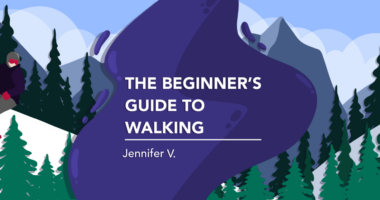Why I Changed My Mind About Getting the COVID-19 Vaccine

I was hesitant about getting the COVID-19 vaccine because there is still limited data about its safety and efficacy in people with rare diseases. However, there is also no evidence that the COVID-19 vaccines harm people with rare diseases, including people like me who are immunocompromised.
I am still a bit concerned about how quickly the vaccines were developed. Nevertheless, I understand that urgency is required to end a pandemic with devastating consequences. Plus, researchers have better technology and more knowledge than they did during past epidemiological threats.
Again, this is a personal decision. As with other vaccines or medications, each person may react differently. After a lot of thinking and consulting various reliable sources, I decided that the benefits outweigh the risks for me, and it was time for my vaccine. I got my first shot of the Pfizer-BioNTech COVID-19 vaccine in Dartmouth, Massachusetts on April 17.
I had an appointment, and the entire process took 45 minutes. After the shot, I waited 15 minutes in case of an adverse reaction. The only side effect I have had so far is a little pain at the injection site. My second shot will be on May 8 (three weeks after the first shot).
I changed my mind because:
- I am an immunocompromised patient. People who are immunocompromised are at a higher risk of becoming severely sick from the virus.
- I am a medical interpreter and an independent contractor. My job requires me to visit clinics, hospitals, and long-term care facilities. These locations increase my risk of coming into contact with someone infected with COVID-19.
- I gathered COVID-19 vaccine information that applies to people with my specific condition. I received this information from my doctor, Michael Levy, MD, PhD, The Sumaira Foundation for NMO, and The Guthy-Jackson Charitable Foundation.
I worried about receiving a newly developed vaccine, and wondered if it might bring me more headaches than benefits in the future. I do not believe that any medication is 100% safe, and this vaccine is no different.
I don’t know if the vaccine will protect me completely, or if I may experience some side effects in the future. But right now, I prefer to take my chances and get vaccinated. Following is the specific information that helped me to make my decision.
I didn’t know if I should get vaccinated while on immunosuppressive therapy for neuromyelitis optica spectrum disorder (NMOSD). I learned that even if the vaccine does not protect me from all of the novel coronavirus strains, at least the potential consequences of contracting the virus would be less severe.
I wondered if I should get the vaccine because my treatment is Rituxan (rituximab), which depletes B-cells. I learned that Rituxan may affect vaccine efficacy. Experts advise waiting seven to 14 days after vaccination to receive treatment. I will get my second shot on May 8, and my Rituxan infusion is on May 20.
What worried me the most was whether the vaccine would increase my risk of relapse. Fever is a possible side effect of the vaccine, especially after the second shot. I wondered if my immune system would confuse this with an infection, and if that might trigger my old symptoms. Experts say that there is currently no evidence that this happens.
It seems like every time we turn around, there is a new COVID-19 strain. I thought that maybe it was pointless to get vaccinated against one strain if I was not protected against others. Experts say that the COVID-19 vaccines protect against the majority of variant strains. Even if current vaccines are less effective against some strains, that does not mean they will not offer any protection.
Finally, I worried that if the COVID-19 vaccine contained a live virus, it would make me sick and possibly provoke an NMO relapse. I learned that none of the vaccines contain the live virus that causes COVID-19, so getting the vaccine cannot make me sick with COVID-19.
Have you been vaccinated against COVID-19? Please share your thoughts in the comments below.
***
Note: Neuromyelitis News is strictly a news and information website about the disease. It does not provide medical advice, diagnosis, or treatment. This content is not intended to be a substitute for professional medical advice, diagnosis, or treatment. Always seek the advice of your physician or other qualified health provider with any questions you may have regarding a medical condition. Never disregard professional medical advice or delay in seeking it because of something you have read on this website. The opinions expressed in this column are not those of Neuromyelitis News or its parent company, Bionews, and are intended to spark discussion about issues pertaining to neuromyelitis optica spectrum disorder.






Leave a comment
Fill in the required fields to post. Your email address will not be published.